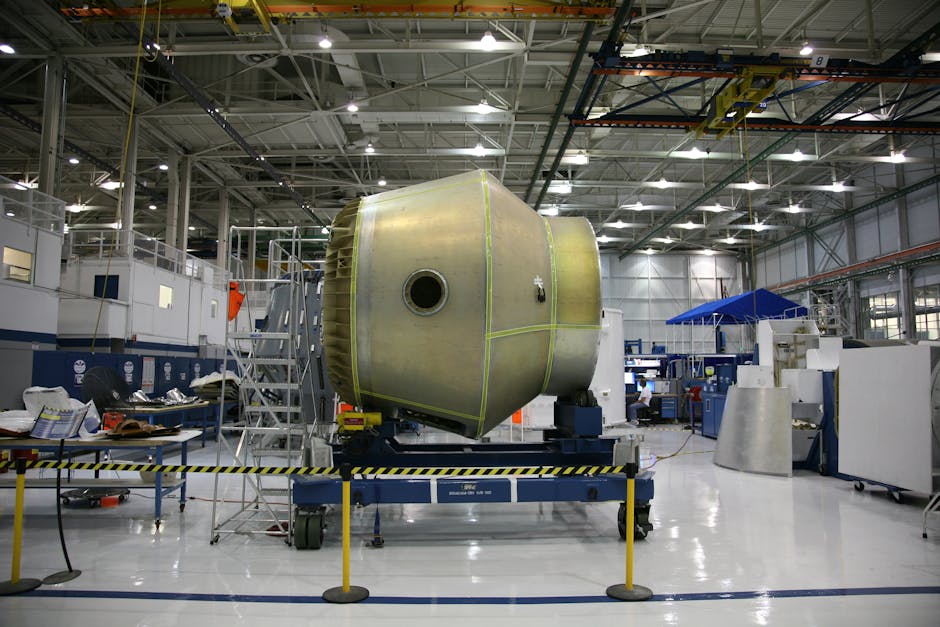Unlock encrypted content
Please enter your SSCE key to initiate on-the-fly decryption.
Decryption key: (Click cancel if you don't have the key)
Copied link to clipboard.
This feature is unavailable for free accounts. Upgrade now and enjoy all Premium benefits.
Go Premium!
This feature is unavailable for free accounts. Upgrade now and enjoy all Premium benefits.
Go Premium!
Please open this page in browser ( Google Chrome or Safari ) to use this feature.
Open In Browser
The Future of Technology: Automation, Cybersecurity, and Collaborative Innovations in Business.
Random related video for this blog.
Copied share link to clipboard.
The technological landscape is rapidly evolving, bringing forth exciting advancements and challenges.
Automation and Job Displacement
Automation has become a significant force in reshaping industries and job markets. As businesses adopt automated systems and artificial intelligence, the potential for job displacement increases. For instance, in manufacturing, robotics can perform repetitive tasks with high precision, reducing the need for manual labor. The automotive industry is experiencing similar changes through the introduction of autonomous vehicles, like those from Tesla, which utilize advanced software such as Tesla Autopilot. While these innovations enhance efficiency and safety, they also pose a risk to traditional job roles. However, it's important to note that automation is not merely a job eliminator; it can create new opportunities as well. Consider the rise of jobs in data analysis, machine learning, and maintenance of automated systems. As companies transition to more automated processes, they require skilled personnel who can manage and optimize these technologies. Furthermore, industries like cybersecurity are growing in response to increased reliance on digital systems, where professionals are needed to protect sensitive data from cyber threats. To mitigate the impact of job displacement, organizations and governments must invest in education and training programs that equip workers with the skills necessary for the future job market. Initiatives such as reskilling and upskilling programs can help workers transition into new roles that emerge from technological advancements.Cybersecurity Solutions
As the digital landscape expands, so does the need for robust cybersecurity solutions. Businesses increasingly rely on cloud storage for data management and collaboration, making them prime targets for cyberattacks. Effective cybersecurity measures are essential to protect sensitive information and maintain customer trust. Companies must adopt comprehensive strategies that include encryption, firewalls, and regular security audits to safeguard their data. One critical area of focus is the implementation of Secure-Solo-Cipher Encryption(SSCE), which adds an extra layer of protection for sensitive files. This technology ensures that even if data is intercepted, it remains unreadable without the proper decryption key. Businesses using platforms like FileLu can benefit from such encryption methods to enhance their data security. As cyber threats continue to evolve, staying ahead of potential vulnerabilities is crucial for any organization. Moreover, the rise of wearable devices has introduced new dimensions to cybersecurity. These devices collect personal data, making them attractive targets for hackers. Companies must ensure that the data collected from wearables is securely transmitted and stored, further emphasizing the importance of integrated cybersecurity solutions across all aspects of technology.
High-Speed File Downloads and Cloud Storage for Businesses
In today’s fast-paced business environment, high-speed file downloads and efficient cloud storage are vital for productivity. The ability to quickly share large files is essential for collaboration, especially in industries such as media and entertainment, where collaborative video editing is becoming the norm. Platforms that offer seamless file transfer capabilities, such as FileLu, enable teams to upload and share files effortlessly, enhancing teamwork and project completion times. Cloud storage solutions allow businesses to store and access data from anywhere, providing flexibility and scalability. With options ranging from free plans to premium storage solutions, companies can choose the right plan based on their needs. For example, FileLu offers storage plans from 51 GB to 500 TB, catering to various organizational requirements. Furthermore, the ability to back up files in the cloud ensures that data is protected against loss or damage. As organizations leverage mobile app integration, they can streamline workflows and improve communication among team members. This integration allows employees to access files and collaborate on projects from their mobile devices, enhancing productivity and responsiveness. The combination of high-speed file downloads and effective cloud storage solutions empowers businesses to adapt to changing demands and maintain a competitive edge.Collaborative Video Editing and Its Impact on Content Creation
Collaborative video editing has transformed the way content is created and shared. With the advent of cloud-based editing tools, teams can work together in real-time, regardless of their physical location. This shift has made it easier for filmmakers, marketers, and educators to produce high-quality content efficiently. For instance, platforms that support collaborative video editing enable multiple users to edit and comment on the same project simultaneously, streamlining the production process. The impact of collaborative video editing extends beyond efficiency; it also fosters creativity and innovation. When team members can contribute their ideas and expertise in real-time, the final product often reflects a richer and more diverse perspective. This collaborative approach is particularly beneficial in industries where content must resonate with a wide audience, such as advertising and entertainment. Moreover, the integration of cloud storage solutions within video editing platforms ensures that all project files are securely stored and easily accessible. This functionality minimizes the risk of data loss and allows for easy sharing among team members. Businesses that embrace collaborative video editing can produce content more quickly and effectively, ultimately enhancing their marketing and communication strategies.Autonomous Vehicles and Their Future in Transportation
The development of autonomous vehicles is one of the most exciting advancements in transportation technology. Companies like Tesla are leading the charge with their innovative approaches to self-driving technology, such as Tesla Autopilot. These vehicles utilize complex algorithms and sensors to navigate roads with minimal human intervention, promising to improve safety and efficiency on our roads. The potential benefits of autonomous vehicles extend beyond convenience. They could reduce traffic accidents, lower emissions, and transform urban planning by changing the way we design cities. As autonomous vehicles become more mainstream, we may see a shift in public transportation systems and logistics, with a focus on sustainability and reduced congestion. However, the integration of autonomous vehicles into society also presents challenges, particularly regarding regulations, insurance, and public acceptance. Policymakers must address these issues to ensure a smooth transition to a future where self-driving cars are commonplace. Furthermore, the development of supporting infrastructure, such as dedicated lanes and charging stations, is essential for the widespread adoption of autonomous vehicles.Wearable Devices and Their Role in Business
Wearable devices are increasingly becoming integral to various business sectors, offering unique opportunities for data collection and employee engagement. From fitness trackers to smart glasses, these devices enable organizations to monitor employee health and productivity in real-time. For example, companies in the healthcare industry can use wearables to track patient vitals remotely, enhancing patient care and engagement. In addition to health monitoring, wearable devices can facilitate improved communication within teams. Smartwatches and augmented reality glasses can provide employees with instant access to information, notifications, and communication tools without disrupting their workflow. This integration can lead to enhanced efficiency and collaboration, especially in fast-paced environments such as manufacturing and logistics. However, as with any technology, the adoption of wearable devices raises privacy and security concerns. Organizations must implement policies to protect employee data and ensure compliance with regulations. By balancing the benefits of wearable technology with a commitment to data privacy, businesses can harness the potential of these devices while maintaining employee trust.The Importance of File Backup and Data Integrity
File backup is a critical aspect of any business's data management strategy. As organizations increasingly rely on digital files for operations, the risk of data loss due to accidental deletion, hardware failure, or cyberattacks becomes a significant concern. Implementing a robust backup solution is essential to ensure data integrity and business continuity. Cloud storage solutions like FileLu offer reliable backup options, allowing businesses to store their files securely and access them from anywhere. With the ability to back up large files and implement automated backup schedules, companies can minimize the risk of data loss and ensure that critical information is always protected. The convenience of cloud storage also allows teams to collaborate effectively, as everyone can access the most up-to-date files without the fear of losing important data. Additionally, businesses should consider using multiple backup strategies, such as local backups and cloud backups, to enhance data security. This multi-layered approach provides an extra safety net, ensuring that data remains accessible and intact, even in the face of unexpected challenges.Conclusion
The convergence of technology across various sectors is reshaping the way we work, communicate, and live. From automation and cybersecurity solutions to collaborative video editing and autonomous vehicles, the innovations we see today are paving the way for a more efficient and connected future. As businesses navigate this ever-evolving landscape, it is crucial to embrace these changes while remaining aware of the challenges they present. By investing in education, training, and robust technological solutions like cloud storage and file backup, organizations can position themselves for success in the digital age.Frequently Asked Questions (FAQs)
Question: What are the benefits of automation for businesses? Answer:
Automation increases efficiency, reduces costs, and enhances accuracy in operations.
Question: How can businesses protect their data in the cloud? Answer:
Implementing encryption, regular backups, and access controls can enhance data security.
Question: What role do wearable devices play in employee productivity? Answer:
Wearable devices can monitor health, enhance communication, and streamline workflows.
By Amelia Isabella
Email: [email protected]
Related
Exoplanets and Habitable Worlds: Exploring the Possibilities of Life Beyond...
June 29, 2023
Read More
Nanotechnology: Transforming Futuristic Societies with Advanced Technologies
June 29, 2023
Read More
Intelligent File Management and Security: Enhancing Efficiency and Protecting Data...
June 29, 2023
Read More
FileDrop: Simplifying File Accessibility and Enhancing Big Data Storage Solutions
June 29, 2023
Read More
Effortless File Organization and Advanced Downloading Tools: The Benefits of...
June 29, 2023
Read More
Advanced Uploading Tools and Secure File Sharing: Enhancing Efficiency and...
June 29, 2023
Read More
Popular
Latest
The Future of Digital Transformation: Exploring Smart Homes, Efficient File...
November 30, 2025
Read More
Exploring the Benefits of Cloud Storage and Innovative Technologies in...
November 26, 2025
Read More
The Future of Technology: Exploring Biohacking, Space Tourism, and Digital...
November 23, 2025
Read More
The Future of File Sharing: Streamlined Workflows for Photographers and...
November 19, 2025
Read More
Exploring the Intersection of Technology: From Cybersecurity to Augmented Reality...
November 16, 2025
Read More
The Future of File Management: Embracing Edge Computing and Efficient...
November 12, 2025
Read More
The Future of File Sharing: Exploring User-Friendly Solutions and Data...
November 5, 2025
Read More
The Future of Cloud Storage: How FileLu Empowers Creative Professionals...
November 2, 2025
Read More
The Future of Autonomous Technologies: Innovations in Robotics, File Sharing,...
October 29, 2025
Read More
Emerging Technologies Revolutionizing File Management: From Li-Fi to Robust Collaboration...
October 26, 2025
Read More
Emerging Technologies: Exploring the Impact of File Access Auditing, Genetic...
October 19, 2025
Read More
The Future of Data Storage: Exploring Advanced Encryption, Mobile Integration,...
October 5, 2025
Read More
Exploring the Future of Data Management: Security, Efficiency, and Cognitive...
September 28, 2025
Read More
Revolutionizing Data Management: Innovations in Storage, Security, and Sustainable Technology.
September 24, 2025
Read More

















